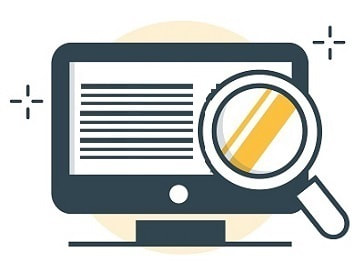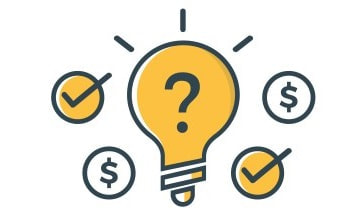The Beginner's Guide to Everything Bitcoin and Blockchain
Our guide explains the different types of blockchain powering cryptocurrencies, how they work, why they're so disruptive to the status quo and the parties involved in the ecosystem of a cryptocurrency. We cover ICOs, risks, misconceptions and more.
Updated 7 August 2023
Summary
Our guide covers:
Warning:
Summary
- Bitcoin, cryptocurrencies and the underlying blockchain technologies which power these decentralised payment instruments regularly make their way into New Zealand media. It can be unsettling to think you're missing out on an investment opportunity that you don't understand, but cryptocurrency has a lot of risks.
- Sometimes you'll hear about dramatic price rallies and fortunes made, or large-scale hacks where investors lose eye-watering amounts of money (such as the Cryptopia scandal). Other times, you might hear about innovations in e-commerce and international trade, or wide-reaching money laundering operations where criminals benefited from the relative anonymity of Bitcoin.
- Regardless of the current sentiment towards cryptocurrencies, blockchain, and cryptographic currencies are innovative inventions. The use of blockchain goes much further than being a payment network. The technology is being trialled in numerous sectors where transparency is paramount.
- Often those who are new to the concept of Bitcoin, blockchain and cryptocurrencies paint it all with the same brush; Bitcoin and blockchain are not one and the same. However, the terms are understandably coupled together as Bitcoin is the most popular cryptocurrency and blockchain technology became a general interest topic alongside Bitcoin.
- This unique sector comprises many elements, which we outline in this guide. Although we will explain Bitcoin and blockchain separately, there will be many situations where the two concepts overlap.
Our guide covers:
- A Complete Introduction - we explain the different types of blockchain powering all those cryptocurrencies, how they work, why they're so disruptive to the status quo and the parties involved in the ecosystem of a cryptocurrency. We also outline various cryptocurrencies besides Bitcoin, including infamous initial coin offerings (ICOs)
- Wallets and How to Keep Cryptocurrencies Secure
- How to Buy Cryptocurrencies and What You Need to Know Before Investing
- The Fundamental Principles of Blockchain in Finance
- Risks and Misconceptions about Cryptocurrency
Warning:
- By publishing this guide, we are not recommending or suggesting in any way or form that Bitcoin or any other cryptocurrency is a suitable investment.
- We published and update this guide to help people understand the fundamentals and risks of cryptocurrency - MoneyHub is conservative and our publisher, Christopher Walsh, has zero Bitcoin or other cryptocurrency investments.
- We present this information in good faith and remain objective at all times. By including this guide under our Investing and Saving section, we are not advocating that cryptocurrency is an investment. We may earn a referral bonus for anyone that clicks on some of the below links - see our Advertising Policy for more details.
An Introduction to Decentralised Finance and Blockchain
Bitcoin is a decentralised digital currency, whereas blockchain is the technology underpinning Bitcoin and many other cryptocurrencies. To give a simple analogy of what a blockchain is, you could consider it similar to an operating system which governs how the cryptocurrencies function.
A Short History
A Short History
- To better understand the revolutionary implications blockchain has in decentralising different aspects of finance, we should take a step back and consider what led up to its invention.
- When computers first emerged, they were too costly for anyone to own except governments or large corporations, such as banks and investment firms. They also required specialist knowledge from computer scientists who could build infrastructure and code software programs in arcane languages.
- Wide-scale international payment networks like Visa, Mastercard, SWIFT, and several others were developed to make cross-border payments relatively seamless. These networks had little competition due to the high barrier of entry. Therefore, these institutions hold a monopoly over the established payment networks that many of us rely on for making transactions every day, and there was not much we could do to change that, until recently.
- Access to banking and payment services remains predominantly controlled by a few large corporations that have earned a bad reputation over the years. They are mainly known for their disregard for risk management, transparency, security and privacy, and disenfranchising entire demographics while catering to the elite and imposing high fees for what should be a straightforward procedure. New Zealand banking fees, for example, are some of the highest in the world when it comes to everyday card use.
- Computers are far more accessible today. Anyone can gain a fundamental understanding of IT, as most schools teach computer literacy from an early age, and universities offer various computer and software engineering courses. Not to mention, the cost of hardware is negligible compared to fifty and sixty years ago when legacy payment institutions first came to the market.
- Shortly after the 2008 financial crisis, a new model was proposed and ultimately introduced as Bitcoin based on this pretence. It's an open-source digital currency secured by cryptography and processed by a decentralised public blockchain.
What is a Blockchain?
A blockchain is a digital ledger which records transactions across many computers simultaneously so that no one can tamper with it without others noticing. Each block typically contains data about timestamps and batches of processed transactions, along with a link to the previous block in the chain. The result is a chain-like structure where each transaction block is locked in a specific sequence. To alter one transaction would require changing all subsequent blocks too.
The Bitcoin blockchain is by no means the only one. There are dozens of public and private blockchains developed for decentralised finance applications, such as Ethereum, Ripple, Stellar, NEO and more. Blockchain technology is being used in more ways than just transactions. The concept is being applied in other areas of finance, such as trading, investing, loans and more.
Blockchains aren't used only in a finance setting. They are being applied in various sectors where data integrity is critical, such as healthcare, recording ownership of property, supply chain and manufacturing.
Each blockchain has a set of policies, features and rules. In general, a blockchain is a ledger of transactional data, grouped into blocks, processed to validate the information's authenticity and chained into a sequence.
The Bitcoin blockchain is by no means the only one. There are dozens of public and private blockchains developed for decentralised finance applications, such as Ethereum, Ripple, Stellar, NEO and more. Blockchain technology is being used in more ways than just transactions. The concept is being applied in other areas of finance, such as trading, investing, loans and more.
Blockchains aren't used only in a finance setting. They are being applied in various sectors where data integrity is critical, such as healthcare, recording ownership of property, supply chain and manufacturing.
Each blockchain has a set of policies, features and rules. In general, a blockchain is a ledger of transactional data, grouped into blocks, processed to validate the information's authenticity and chained into a sequence.
What is Cryptocurrency?
The phrase cryptocurrency is a combination of the words cryptography and currency. The cryptographic properties possessed by cryptocurrencies are what makes them so powerful.
The core feature of a cryptocurrency is verifying ownership and authorising transactions cryptographically. This allows cryptocurrencies to function without a central authority verifying ownership before allowing transactions to be processed. Consider how an ATM asks for your PIN, or your bank requires a password when using online banking.
To spend cryptocurrencies, you need to possess a private key to prove ownership and transfer balances from one address to another. The private key is the only thing that can prove ownership; it is impossible to transfer balances without that. The robust encryption is a replacement to a governing authority, such as a bank or payment institution.
The core feature of a cryptocurrency is verifying ownership and authorising transactions cryptographically. This allows cryptocurrencies to function without a central authority verifying ownership before allowing transactions to be processed. Consider how an ATM asks for your PIN, or your bank requires a password when using online banking.
To spend cryptocurrencies, you need to possess a private key to prove ownership and transfer balances from one address to another. The private key is the only thing that can prove ownership; it is impossible to transfer balances without that. The robust encryption is a replacement to a governing authority, such as a bank or payment institution.
What is Bitcoin?
Bitcoin is a cryptocurrency created in 2009 by an unknown person or group known as Satoshi Nakamoto, who published a paper about Bitcoin in 2008 and then disappeared without further involvement in the project.
How Bitcoin Works
How Bitcoin Works
- Bitcoin operates on a decentralised network that relies on cryptography for security and records all transactions on a public database, known as a blockchain. The decentralised nature of Bitcoin makes its use as a currency immune to tampering by governments, financial institutions or other large organisations.
- Bitcoin can be used as a payment method and traded speculatively by day traders, retail investors, and hedge funds.
- Bitcoin and other cryptocurrencies have seen dramatic price fluctuations in recent years. While there are plenty of risks to investing in this new asset class, it is an important area for the future of commerce.
- Unfortunately, the volatility makes Bitcoin unsuitable as a payment instrument, as well as a safe-haven asset. There is a lot of anecdotal evidence that institutional traders regularly manipulate the price of Bitcoin. It's also worth noting there have been rumours that the CIA was involved in the creation of Bitcoin.
- Bitcoin was the first cryptocurrency and relatively speaking, has been widely adopted. Before Bitcoin, there were similar attempts. Many other cryptocurrencies evolved from Bitcoin. The most popular are Ethereum, Litecoin, Bitcoin Cash, Stellar and Ripple. However, there are hundreds, even thousands more. All with varying features and use cases; however, many of them share the same fundamental characteristics.
What are ICOs?
ICO stands for Initial Coin Offering and is the equivalent of an Initial Public Offering (when a company goes public in the sharemarket, i.e. Xero back in 2006 and Pushpay in 2017), in the cryptocurrency community. An ICO is where companies or start-ups offer investors coins or tokens in return for capital in either fiat or cryptocurrency. The money is used to help fund projects that will have some sort of blockchain or cryptocurrency component.
Unlike an IPO, when a highly scrutinised and economically active company floats its shares on a regulated exchange such as the NZX or Dow Jones, some ICOs are based solely on a white paper that details its business and technical objectives. Sometimes a project may go as far as to release a demo or a minimum viable product.
ICO data:
Unlike an IPO, when a highly scrutinised and economically active company floats its shares on a regulated exchange such as the NZX or Dow Jones, some ICOs are based solely on a white paper that details its business and technical objectives. Sometimes a project may go as far as to release a demo or a minimum viable product.
ICO data:
- According to ICO Bench, an ICO benchmarking website, the website has registered 5,728 ICOs. The project that has gone down in history books for raising the most money is EOS, which has collected almost $4.2bn to fund the project.
- In 2017, when ICOs reached their peak, a total of $5.6bn had been raised. In December 2017, during the first crypto bull market, a total of $1.2bn was raised in a single month.
- Although many ICOs delivered the products and services the creators promised and token holders were rewarded for their investment, many more ICOs, unfortunately, went on to achieve very little. This usually led to investor losses.
- There have been many examples of ICO scams taking advantage of the crypto frenzy of 2017 and 2018. OneCoin was a prominent Ponzi scheme allegedly brought in $4bn, with Chinese authorities seeing approximately $267.5m.
- SellMyGood Coin was a New Zealand example which was suggested to be a scam by journalists and the Financial Markets Authority (FMA).
- Due to the many fraud cases in this sector, regulators and prosecutors (including the FMA) have a keen interest in ICO projects.
What is Cryptocurrency Mining?
Miners play an essential role in the ecosystem of a cryptocurrency. The mining process occurs when transactions, such as sending a payment, need to be processed and validated. Mining is a complicated process but essentially involves powerful computers solving complex equations while simultaneously confirming transactions and adding them to blocks that are then added to the blockchain and synchronised with all nodes.
Miners are rewarded for their work with newly issued coins or tokens, plus any network fees pledged by spenders. When Bitcoin first launched, miners were rewarded 50 BTC for each block, approximately every four years that amount is halved. Currently, miners are rewarded with 12.5 BTC per block. The only way new Bitcoin can be created is to process a block of transactions.
Why mining is unlikely to be an option
Miners are rewarded for their work with newly issued coins or tokens, plus any network fees pledged by spenders. When Bitcoin first launched, miners were rewarded 50 BTC for each block, approximately every four years that amount is halved. Currently, miners are rewarded with 12.5 BTC per block. The only way new Bitcoin can be created is to process a block of transactions.
Why mining is unlikely to be an option
- In most cases, particularly for Bitcoin, mining requires more processing power than a single computer can handle because they must be processed.
- The increasing complexity as more transactions are added into each block, and the ledger grows. The first miner to process a block earns the reward. Therefore, miners collaborate by forming mining pools to increase their processing power and compete with other miners.
- Bitcoin mining has become a more centralised process in recent years, with large pools controlling much of the network's hash rate (computing power).
- This phenomenon contradicts the philosophy of Bitcoin, which is decentralisation.
What are Cryptocurrency Wallets?
Cryptocurrency wallets are an essential component of keeping your Bitcoin and other coins safe while conveniently sending and receiving transactions. It is a common mistake to store your Bitcoins on an exchange platform, as it leaves them vulnerable to hacking and other forms of attack. Remember your cryptocurrency assets are only as safe as the wallet you store them in.
A cryptocurrency wallet is an application that stores your private key, public address and is often compatible with various types of coins. The private key you keep in the wallet corresponds to the public address you will share with others to send you funds.
How Cryptocurrency Wallets Work
1. Offline Wallets
2. Online Wallets
The private key is the most important thing to safeguard when it comes to cryptocurrency. Without it, you lose access to your funds, and if someone else takes control of it, they can spend your funds. Once a transaction is processed, it's irreversible.
A cryptocurrency wallet is an application that stores your private key, public address and is often compatible with various types of coins. The private key you keep in the wallet corresponds to the public address you will share with others to send you funds.
How Cryptocurrency Wallets Work
- Cryptocurrency wallets are essentially digital, encrypted bank accounts that let you send or receive money from other people and view your balance in different currencies like USD or EUR.
- A cryptocurrency wallet can usually hold Bitcoin (BTC), Ethereum (ETH), Bitcoin Cash (BCH), Litecoin (LTC) and other cryptocurrencies. Some even support hundreds of types of digital assets.
- There are different types of wallets which are compatible with other coins and tokens. The main distinction between wallets is online and offline:
1. Offline Wallets
- Offline or hardware wallets, also known as cold storage, keep your private keys on a physical USB device, making them extremely secure as they can't be hacked remotely or accessed by viruses but also come at the cost of being more challenging to use on a day-to-day basis.
- Maintaining the integrity of a cold wallet relies on following strict guidelines. The most important rule to follow is never exposing the device to the internet.
- Hardware wallets allow you to sign a transaction in an offline environment and upload pre-authorised transactions without exposing the private key to a device with internet connectivity.
2. Online Wallets
- Online wallets, also known as hot storage, are an internet-banking style application that stores your private key and allows you to initiate transactions more easily but come with greater risk of being hacked.
- The best way to store cryptocurrency is a mixture of both - using an offline wallet for long-term savings while using an online wallet for day-to-day spending.
The private key is the most important thing to safeguard when it comes to cryptocurrency. Without it, you lose access to your funds, and if someone else takes control of it, they can spend your funds. Once a transaction is processed, it's irreversible.
How to Buy Cryptocurrencies from New Zealand
The cryptocurrency market is nowhere near as developed as other asset classes. There are only a handful of brokers and exchanges operating in each country. The most common ways to buy cryptocurrencies in New Zealand are exchanges or brokers, sometimes referred to as retailers.
Brokers
Exchanges
Know this:
Brokers
- A broker will usually specialise in buying and selling cryptocurrencies for fiat, i.e., NZD or USD. Typically, they allow you to purchase cryptocurrencies via a local bank transfer or using your debit/credit card.
- Most people consider this the most convenient way to buy Bitcoin.
- Our guide to How to Buy Bitcoin in New Zealand explains more.
Exchanges
- An exchange will offer a more dynamic trading experience with charts, order books and a wide range of trading pairs.
- If you're looking to speculate on the cryptocurrency markets actively, an exchange trading platform might be a suitable solution for you.
- Our guide to New Zealand cryptocurrency exchanges has more details.
Know this:
- When you open an account with a broker or an exchange, you should expect to provide your proof of identification and possibly even your proof of address.
- Due to the high-level scrutiny cryptocurrency business come under, they often have quite stringent anti-money laundering policies.
Fundamental Principles of Blockchain in Finance
Typically, banks and other payment institutions play an essential role in transferring funds between parties. Blockchain technology offers a new system of processing transactions, verifying ownership and storing information, allowing people to conduct business directly with their counterparty without going through intermediaries like banks, or other centralised payment networks.
However, a set of specific rules and conditions offered by blockchain technology creates a trustless environment. That doesn't mean trust does not exist, but trust is not required. Decentralisation is the cornerstone of what makes it all possible.
However, a set of specific rules and conditions offered by blockchain technology creates a trustless environment. That doesn't mean trust does not exist, but trust is not required. Decentralisation is the cornerstone of what makes it all possible.
1. Decentralised
On a decentralised blockchain, transactions are processed by miners. A miner is an independent entity, either a company or an individual. They contribute computing power to process transactions and operate nodes that host the entire history of transactions dating back to the first block of transactions processed, known as the genesis block. As a result, transactions are not processed by any single entity that could manipulate, corrupt or lose data. As there are so many nodes, it's challenging to interfere with hacking. To successfully alter records on a blockchain, you would need to attack more than 50% of the nodes, which would require so much computing power it would not be a financially viable endeavour.
Nothing can prevent someone from receiving or sending cryptocurrencies. All you need to have is the private key to verify ownership and available funds to spend. It doesn't matter which country you're from, your history or background or your intentions. Cryptocurrencies are described as self-sovereign currencies. You do not depend on any government or nation to issue the currency, maintain its value or permit you to use it, nor can they seize it.
Nothing can prevent someone from receiving or sending cryptocurrencies. All you need to have is the private key to verify ownership and available funds to spend. It doesn't matter which country you're from, your history or background or your intentions. Cryptocurrencies are described as self-sovereign currencies. You do not depend on any government or nation to issue the currency, maintain its value or permit you to use it, nor can they seize it.
2. Immutable
If data on one of the nodes doesn't match with the others, it will be discredited and corrected. Due to this process, once a transaction is recorded on the blockchain, it is practically impossible to change or remove, so nobody can make unauthorised changes without altering more than 50% of the nodes. Since transactions are irreversible; merchants do not have to worry about chargebacks as they do with credit cards because transactions cannot be reversed once recorded on the blockchain. Digital currencies allow quick and secure payments between two parties who may not know each other or trust one another in person or online exchanges.
3. Transparent and Private
Although it sounds like an oxymoron, blockchain enables both privacy and transparency. Each block of transactions includes information about who sent and received what, and when. However, transactions aren't linked to personally identifiable information, just the public address, similar to an account number. The public address acts as a pseudonym that can only be traced using external data sources.
Risks and Misconceptions
Owning cryptocurrencies also comes with a number of risks. Digital assets are very different from traditional payment methods, making you vulnerable to tricks and mistakes. Specifically:
1. Bitcoin is not a store of value or a safe-haven
The primary risk of owning Bitcoins is price volatility. The value of Bitcoin has fluctuated, on many occasions, by as much as 30% in just one day! Many proponents of cryptocurrencies tout Bitcoin as a safe-haven asset and a store of value. That couldn't be further from the truth. Bitcoin prices are far more volatile than gold prices. The CEO of Coinbase, one of the largest cryptocurrency exchanges issued a statement warning investors about the volatile nature of Bitcoin.
2. Bitcoin is not anonymous
Many Bitcoin users are led to believe that Bitcoin transactions are anonymous. Bitcoin is pseudonymous, which is quite different. Although transactions are not in your name, as they would be with a bank transfer or a credit card, they are linked to a unique identifier. Suppose your BTC address is linked to your real identity, such as when you send funds to a cryptocurrency exchange or make a purchase online. In that case, it's relatively easy to connect your identity to your transactions.
1. Bitcoin is not a store of value or a safe-haven
The primary risk of owning Bitcoins is price volatility. The value of Bitcoin has fluctuated, on many occasions, by as much as 30% in just one day! Many proponents of cryptocurrencies tout Bitcoin as a safe-haven asset and a store of value. That couldn't be further from the truth. Bitcoin prices are far more volatile than gold prices. The CEO of Coinbase, one of the largest cryptocurrency exchanges issued a statement warning investors about the volatile nature of Bitcoin.
2. Bitcoin is not anonymous
Many Bitcoin users are led to believe that Bitcoin transactions are anonymous. Bitcoin is pseudonymous, which is quite different. Although transactions are not in your name, as they would be with a bank transfer or a credit card, they are linked to a unique identifier. Suppose your BTC address is linked to your real identity, such as when you send funds to a cryptocurrency exchange or make a purchase online. In that case, it's relatively easy to connect your identity to your transactions.
Can I invest in Crypto via KiwiSaver?
Yes, a select few schemes offer the opportunity to do so. One scheme, Koura KiwiSaver, allows members to invest in their Carbon Neutral Crypto Currency Fund. This is a fund that invests exclusively in Bitcoin. It has a long-term buy-and-hold strategy for investing. Please be aware that cryptocurrencies are highly volatile, and while KiwiSaver is a long-term investment, allocating money to crypto is not without risks. You can learn more about the fund here.






